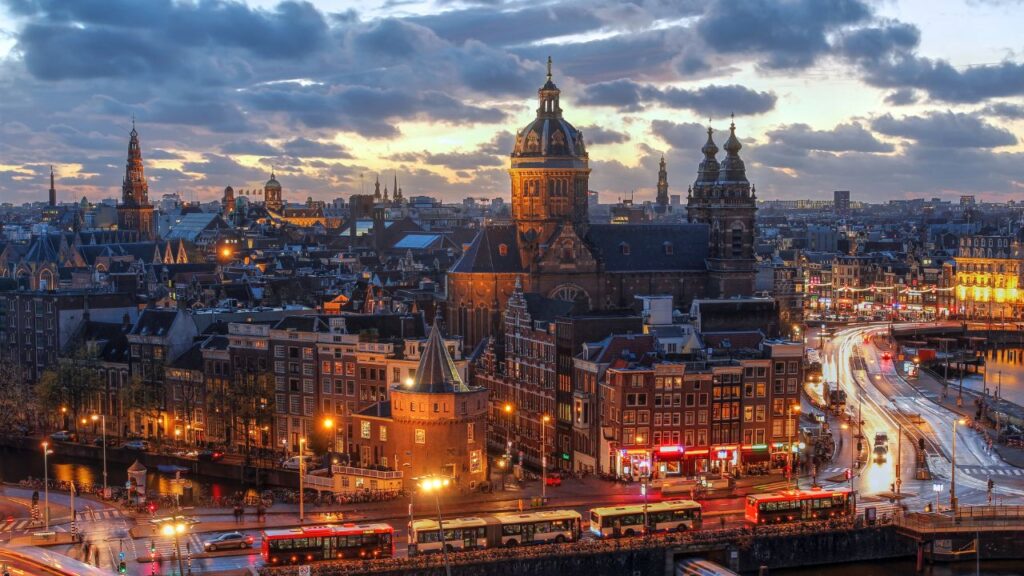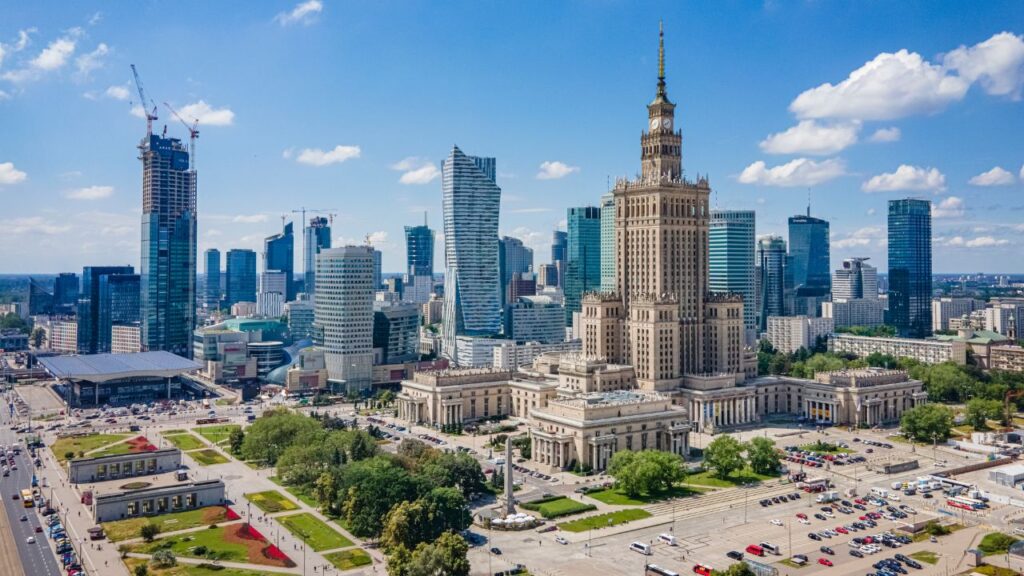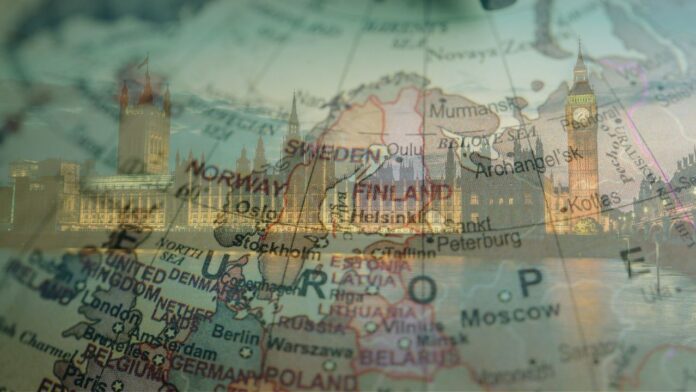In 2025, Europe continues to be home to some of the world’s most powerful economies—and its cities reflect this wealth. From iconic financial hubs to booming innovation centers, Europe’s richest cities are not only known for their high GDPs but also for quality of life, strong infrastructure, and business-friendly environments.
In this article, we dive into a statistical breakdown of the richest cities in Europe 2025, backed by reliable data. We explore GDP figures, income per capita, cost of living, and more to understand what truly makes these cities economic powerhouses. Whether you’re an investor, policy analyst, or curious traveler, this analysis provides key insights into where the money—and opportunity—resides in modern Europe.
How We Ranked the Wealthiest Cities in Europe
To determine the wealthiest European cities in 2025, we relied on several economic indicators:
|
Ranking Criteria |
Description |
|
GDP |
Gross Domestic Product reflects the overall economic output of a city. |
|
GDP per Capita |
Shows the average income per person. |
|
Personal Wealth |
Wealth of residents, including net worth and assets. |
|
Corporate Presence |
Number of multinational HQs and global businesses. |
|
Sectoral Contributions |
Strong industries such as finance, tech, or tourism. |
|
Cost of Living |
How expensive it is to live in these cities. |
Top 15 Richest Cities in Europe in 2025 [Ranked by GDP]
Let’s explore the top contenders in our 2025 ranking of richest cities in Europe.
1. London, United Kingdom
London remains the undisputed financial center of Europe, home to more than 70 Fortune 500 companies, a booming fintech sector, and top-tier global law firms. It boasts the highest number of billionaires in Europe and houses major investment banks, hedge funds, and tech startups in areas like Shoreditch and Canary Wharf.
|
Metric |
Value |
|
GDP (2025) |
$869 billion |
|
GDP per capita |
$91,000 |
|
Major Sectors |
Finance, Tech, Legal, Media |
2. Paris, France

Paris is both a cultural capital and a business engine. Its La Défense district is a core financial hub. With a strong presence of luxury brands, Paris also leads in tourism revenue. High-end real estate prices contribute to the city’s wealth.
|
Metric |
Value |
|
GDP (2025) |
$820 billion |
|
GDP per capita |
$89,000 |
|
Major Sectors |
Fashion, Tourism, Finance |
3. Frankfurt, Germany
As the European Central Bank’s home, Frankfurt is a financial heartland. It’s small in population compared to London or Paris but punches far above its weight in GDP per capita and wealth density.
|
Metric |
Value |
|
GDP (2025) |
$640 billion |
|
GDP per capita |
$98,000 |
|
Major Sectors |
Banking, Insurance, Fintech |
4. Zurich, Switzerland
Zurich ranks among the top for personal wealth and income per capita. It is a magnet for wealthy individuals, family offices, and private equity firms. Strong Swiss franc stability also plays a role.
|
Metric |
Value |
|
GDP (2025) |
$490 billion |
|
GDP per capita |
$115,000 |
|
Major Sectors |
Private Banking, Insurance |
5. Amsterdam, Netherlands

Amsterdam combines a high quality of life with business efficiency. Known for being startup-friendly and progressive, the city is a tech and fintech magnet, with EU headquarters for firms like Netflix, Tesla, and Uber.
|
Metric |
Value |
|
GDP (2025) |
$460 billion |
|
GDP per capita |
$84,000 |
|
Major Sectors |
Logistics, Tech, Startups |
6–15: Other High-Ranking Cities in Europe
These cities consistently rank high for productivity, innovation, and personal income, making them integral to the European economy.
|
City |
GDP (2025 est.) |
Notable Economic Driver |
|
Milan, Italy |
$435B |
Fashion, Design, Finance |
|
Munich, Germany |
$420B |
Automotive, Tech |
|
Geneva, Switzerland |
$395B |
Banking, Trade |
|
Stockholm, Sweden |
$375B |
Innovation, Green Tech |
|
Copenhagen, Denmark |
$350B |
Shipping, Pharma |
|
Oslo, Norway |
$345B |
Oil, Energy |
|
Vienna, Austria |
$340B |
Tourism, Real Estate |
|
Brussels, Belgium |
$330B |
Government, Logistics |
|
Dublin, Ireland |
$325B |
Big Tech HQs |
|
Luxembourg City |
$310B |
Funds, Banking |
Rising Cities to Watch in 2025

While the big names dominate, a few emerging European cities are rapidly rising in wealth.
|
City |
GDP Growth Rate (2023–2025) |
Key Sector |
|
Warsaw, Poland |
+6.2% |
IT & Manufacturing |
|
Prague, Czech Republic |
+5.8% |
Tourism & Tech |
|
Lisbon, Portugal |
+5.5% |
Renewable Energy & Real Estate |
|
Tallinn, Estonia |
+6.4% |
Digital Economy |
These cities benefit from EU funding, innovation ecosystems, and rising foreign investment.
Sectoral Breakdown of Wealth in Top Cities
These cities host top banks, insurance giants, and private equity firms. They are critical to global capital flows.
Financial Services Powerhouses
|
City |
Financial Sector Contribution to GDP |
|
London |
25% |
|
Frankfurt |
30% |
|
Zurich |
35% |
Technology & Startup Hubs
A supportive regulatory environment and innovation-friendly culture drive tech growth in these regions.
|
City |
Notable Companies |
Startup Ecosystem Score |
|
Amsterdam |
Adyen, TomTom |
8.5/10 |
|
Dublin |
Google, Meta, Stripe |
8.7/10 |
|
Stockholm |
Spotify, Klarna |
9.0/10 |
Luxury, Tourism, and Real Estate
High-spending visitors and thriving real estate markets boost overall wealth.
|
City |
Annual Tourism Revenue |
Luxury Market Index |
|
Paris |
$45B |
High |
|
Milan |
$38B |
High |
|
Vienna |
$29B |
Moderate |
Cost of Living vs. Wealth: A Balanced Look
A high GDP doesn’t always mean residents are financially better off. Some cities have strong salaries but also extremely high living costs.
Note: Cities like Vienna and Prague offer excellent disposable income due to lower rent relative to salaries.
|
City |
Avg Monthly Salary |
Avg Rent (1BR City Center) |
Disposable Income |
|
Zurich |
$8,000 |
$2,600 |
High |
|
London |
$6,500 |
$2,800 |
Moderate |
|
Paris |
$5,900 |
$2,400 |
Moderate |
|
Vienna |
$4,800 |
$1,200 |
High |
|
Prague |
$3,500 |
$900 |
High |
Expert Opinions and Reliable Data Sources
According to OECD and IMF projections, Europe’s major cities will continue to grow due to:
- Green energy transitions
- AI and digital transformation
- Global migration of talent
The UBS Global Wealth Report 2024 highlighted Zurich, London, and Frankfurt as top centers for personal net worth, while Mercer’s 2025 Quality of Living Index placed Vienna and Copenhagen at the top for balanced living conditions.
What Makes These Cities Economic Powerhouses?

Several core features make these cities rich:
|
Feature |
Description |
|
Infrastructure |
Efficient airports, transit, broadband, logistics |
|
Policy Stability |
Business-friendly laws and tax regimes |
|
Global Connectivity |
Access to major ports and trade routes |
|
Human Capital |
Highly educated, multilingual populations |
Cities like Amsterdam and Dublin benefit from English-speaking talent, while Zurich and Munich attract top engineers and scientists.
The Future Outlook for European City Wealth
Looking ahead to 2030, several trends will shape the urban wealth landscape:
- AI and automation will fuel the next tech wave in cities like Stockholm and Dublin.
- Sustainable finance will dominate Zurich and Copenhagen’s economic strategy.
- Remote work and hybrid models may shift economic importance to smaller but agile cities like Tallinn or Porto.
Urban planners are also integrating smart city models, carbon neutrality targets, and mobility reforms that will further attract global investors.
Takeaways
The richest cities in Europe in 2025 are not just leading in terms of GDP—they are also centers of innovation, quality of life, and economic resilience. From London and Paris to Zurich and Amsterdam, these cities form the economic backbone of the continent. At the same time, rising stars like Warsaw and Lisbon prove that Europe’s financial future is not limited to the traditional giants.
By understanding the sectors, strategies, and conditions that shape city-level wealth, investors, professionals, and policymakers can better prepare for the opportunities and challenges that lie ahead.


















![10 Countries With the Best Healthcare in the World [Statistical Analysis] Countries With the Best Healthcare in the World](https://articleify.com/wp-content/uploads/2025/07/Countries-With-the-Best-Healthcare-in-the-World-1-150x150.jpg)









